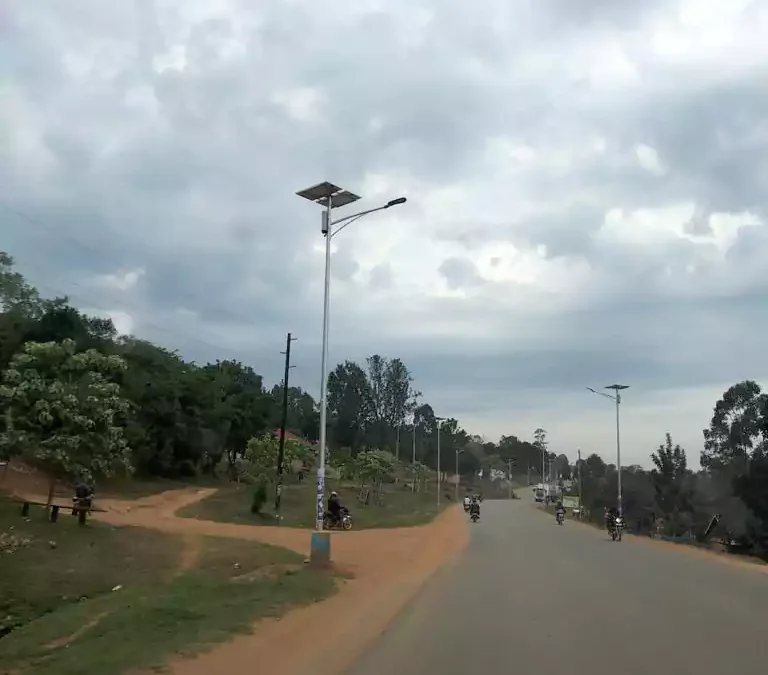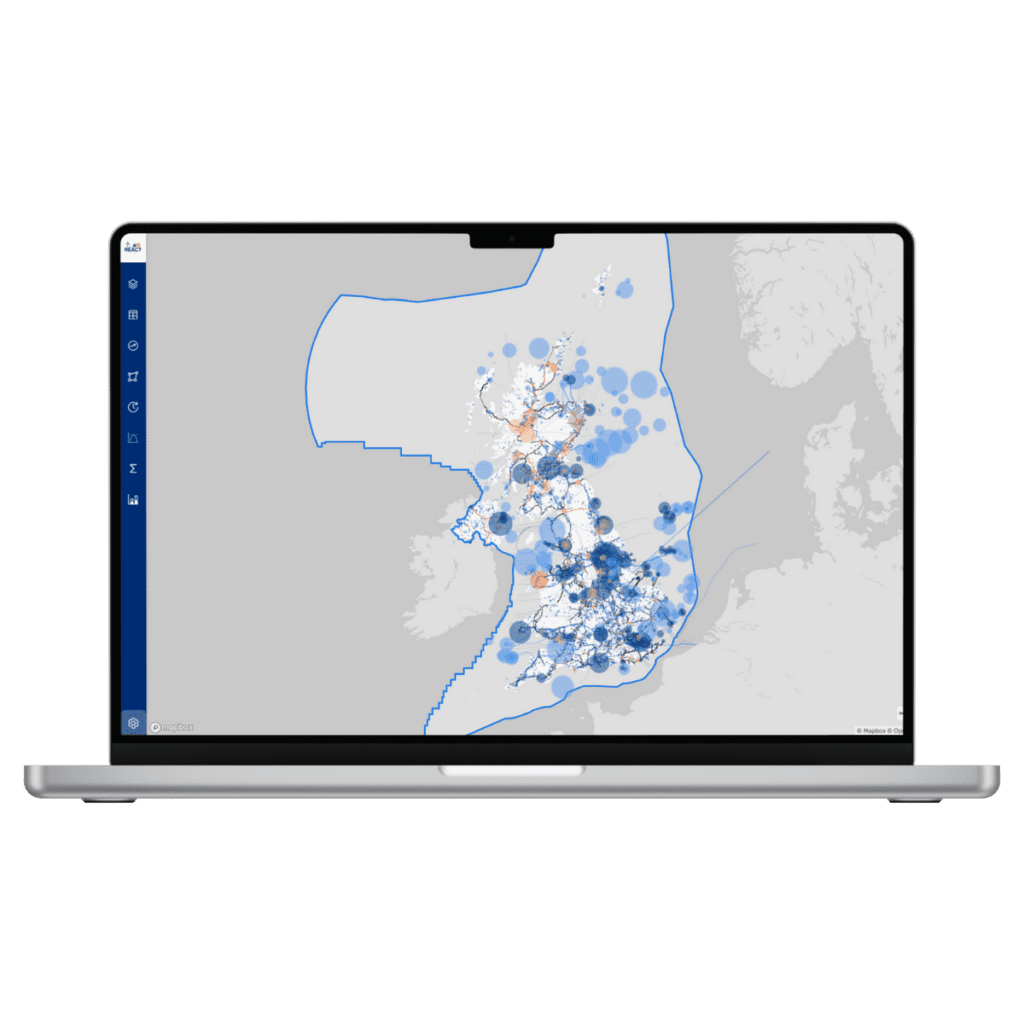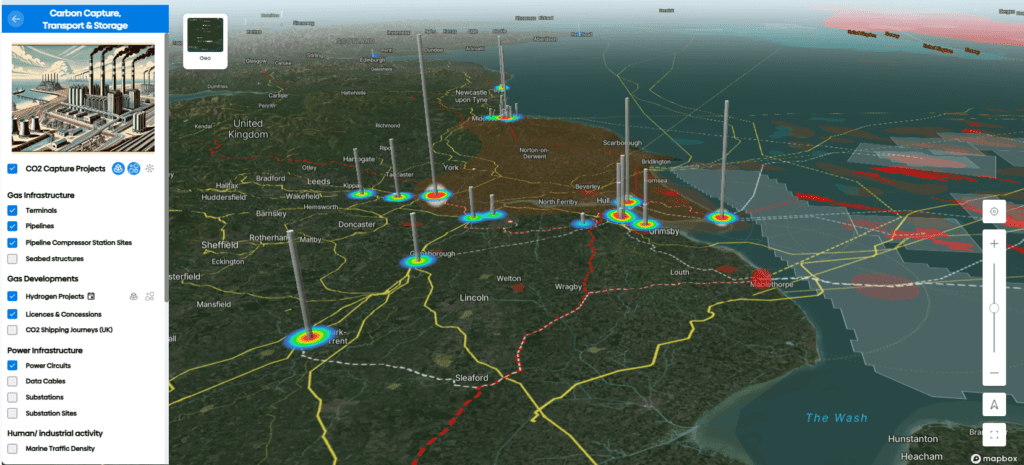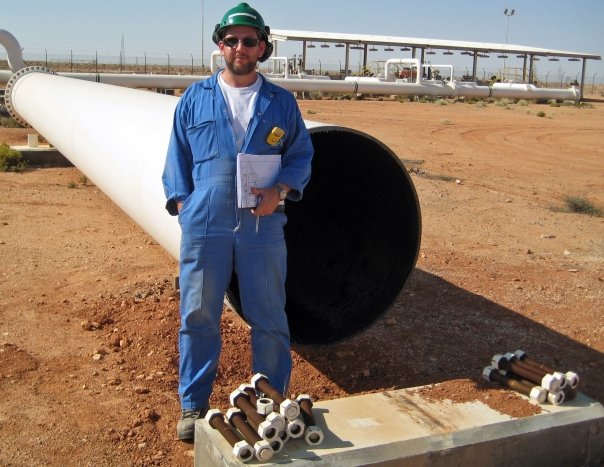Understanding why Africa isn’t powered 100% by solar, given its abundance
Last week I visited Western Uganda, the cattle corridor of the country. Besides the dozens of cattle ranches and homesteads one sees on the drive west of Kampala, I was astonished to realise that most of the main streets in towns were lined with solar-powered street lights. On reaching the village I was to stay in, almost all the houses had rooftop solar panels. It is one thing to read about how solar can solve Africa’s electricity gap, but quite another to see it with your own eyes. Below are a few pictures that show my exploits with cows & solar panels.
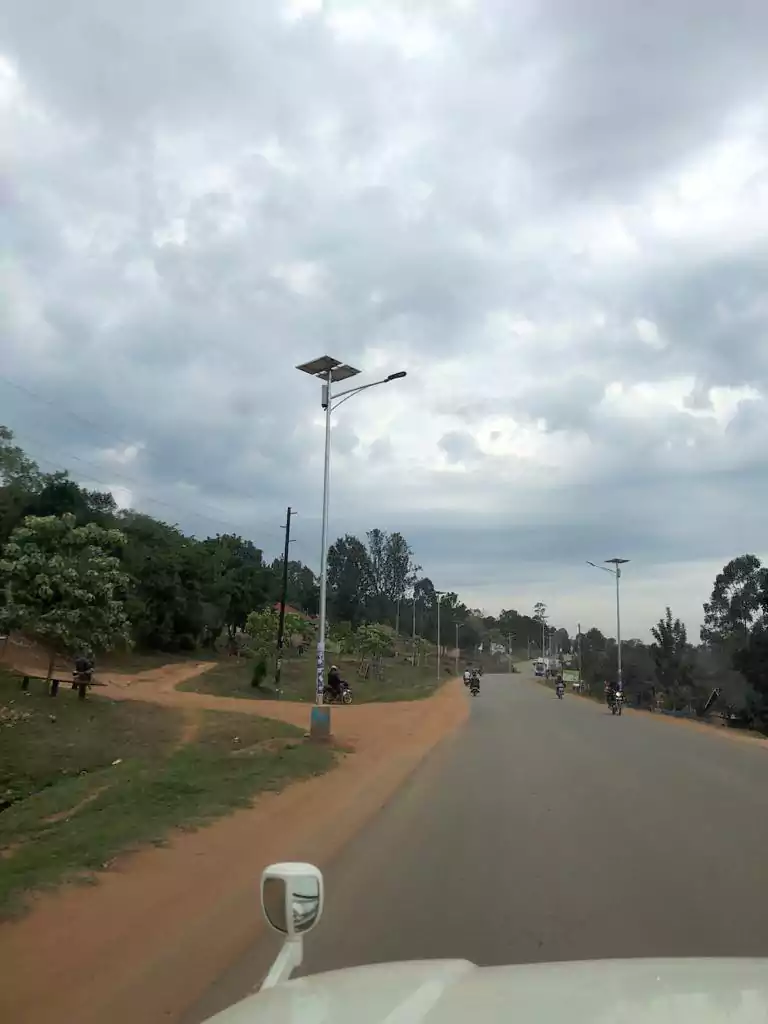
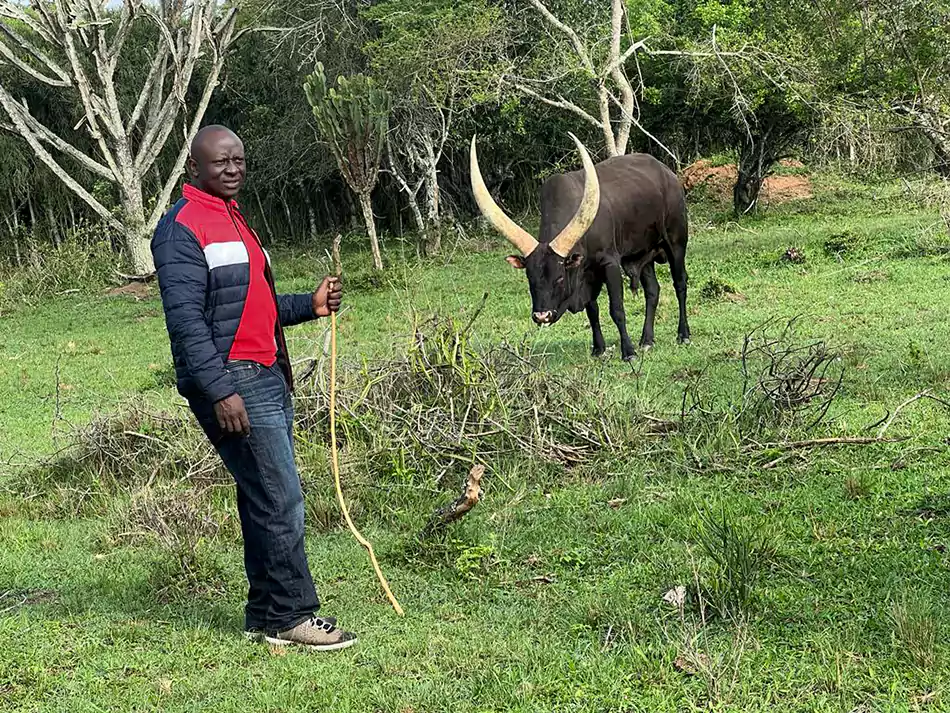
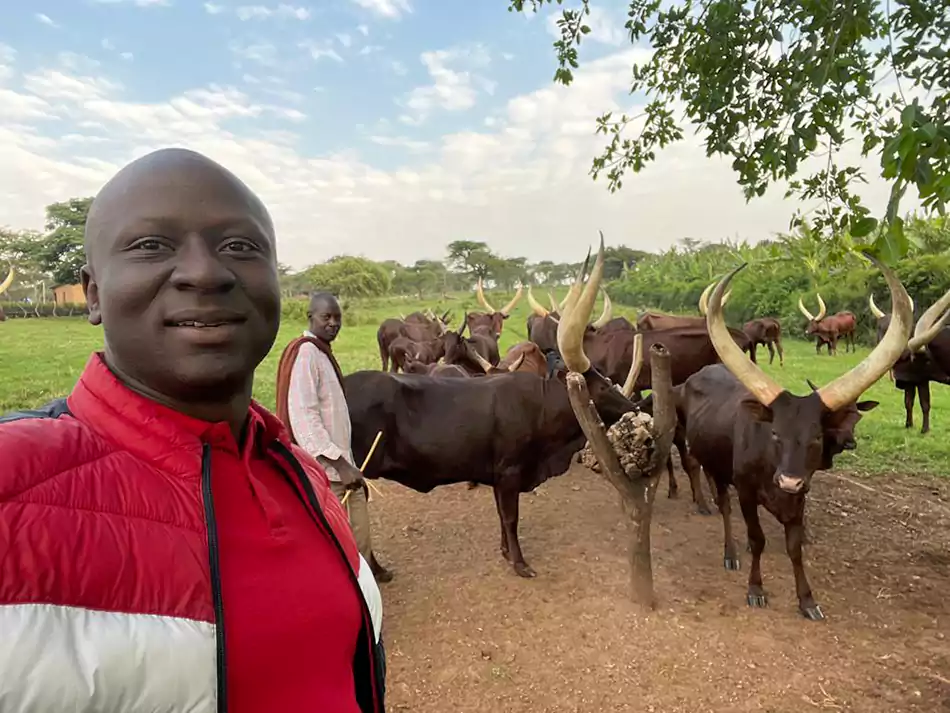

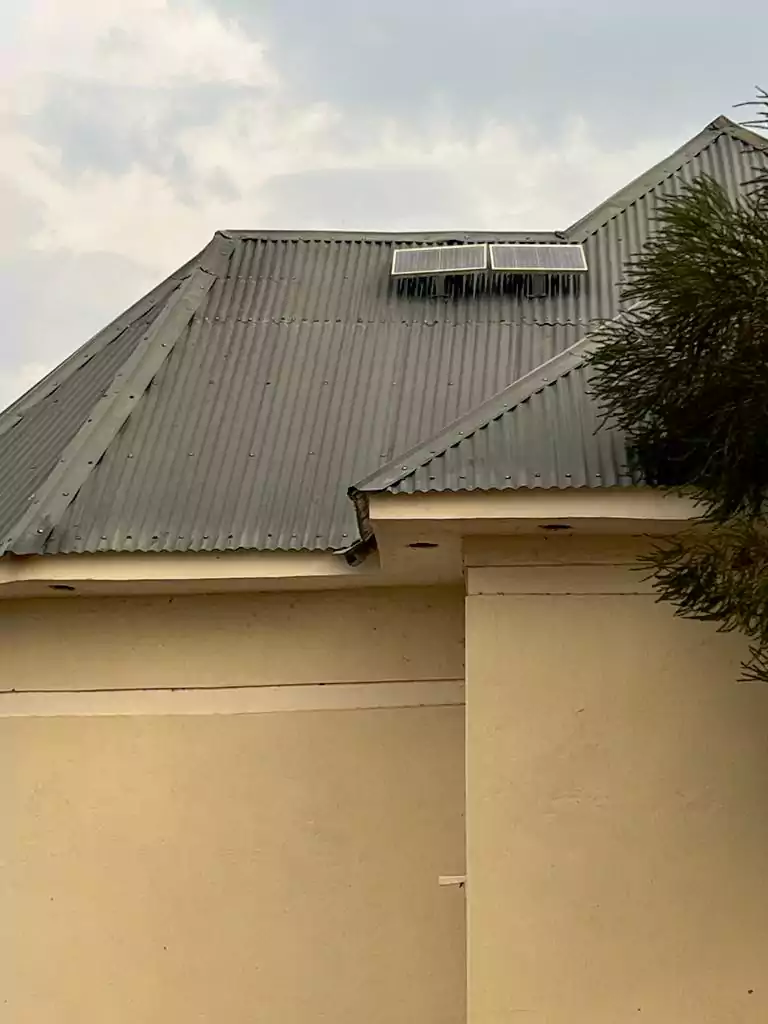

Given Africa’s abundant solar resource, I think it is criminal to read that more than 40% of Africa’s people have no access to electricity (that is a walloping 480m people, more than the EU population). This is a sad reality given Africa’s abundant solar capacity YEAR AROUND. For only £11, one can install a 20w panel system that can light two light bulbs (enough for a typical village hut/house). To put things in perspective, an average cow can sell for about £110 – £300. This means anyone who can afford at least one cow can in effect afford the cheapest solar panel installation in their homestead. So, the lingering question is why isn’t the whole continent powered up by solar?
In my on-ground research, after talking to several people who use solar and a few vendors, the hinderance to universal access to solar power in Africa is due to ignorance and dubious companies/institutions that purposefully misinform the public or take advantage of people’s lack of knowledge. Take for instance the first home I visited. They installed a 250 w system (250w panel + 200 Amp battery + a 12v charge controller) for £1,200. That is a lot of money, but fortunately the family could afford it. However, when I called up a few vendors to understand the real price for such a system configuration, I found out that it goes for a third of the price. So, whoever installed the £1,200 system took advantage of these poor village people. Because the government doesn’t regulate the industry or more precisely doesn’t enforce regulations that could cap prices, preying vendors must be contributing a lot to the situation where someone who could afford a £11 system, is faced with the decision to purchase a £33 system. And given the choice to buy food for the family or enjoy the luxury of lights in the house, most people elect not to have electricity.
The good news is that once solar systems are properly installed, one can go for years without needing maintenance. One vendor told me that: “if installed properly, a powder-based battery solar system can take up to 5 years without needing maintenance, while a water-based battery system takes shorter”. I also witnessed the detriment of the knowledge-gap when I realised that even if a family had installed a 200amp battery discharging electricity at 12 v (which means a combined power output of 2400 watts), they were told not to use all their 6 bulbs in the house (each of 20 watts) for fear that the battery will run out. When I told them that in fact they could use all the bulbs in the house plus install several security bulbs outside and still not run down the battery, they could not believe it. So, their ignorance of their system’s capacity was keeping half their house in darkness, and no security lights outside the house.
Therefore, what is the way forward? What work is needed to eliminate the electricity poverty that affects 40% of people in Africa? Since the solar technology already exists to power the whole continent, I believe the answer lies in education and sensitizing people to know the real market value of solar systems + the actual system parameters once installed.
If you are in need of understanding the technical and economic modelling of solar technologies, reach out to us at info@olwg.co.uk so that we can explain some of our modern web tools we have created such as the Solar PV lifecycle simulator (below screenshot).
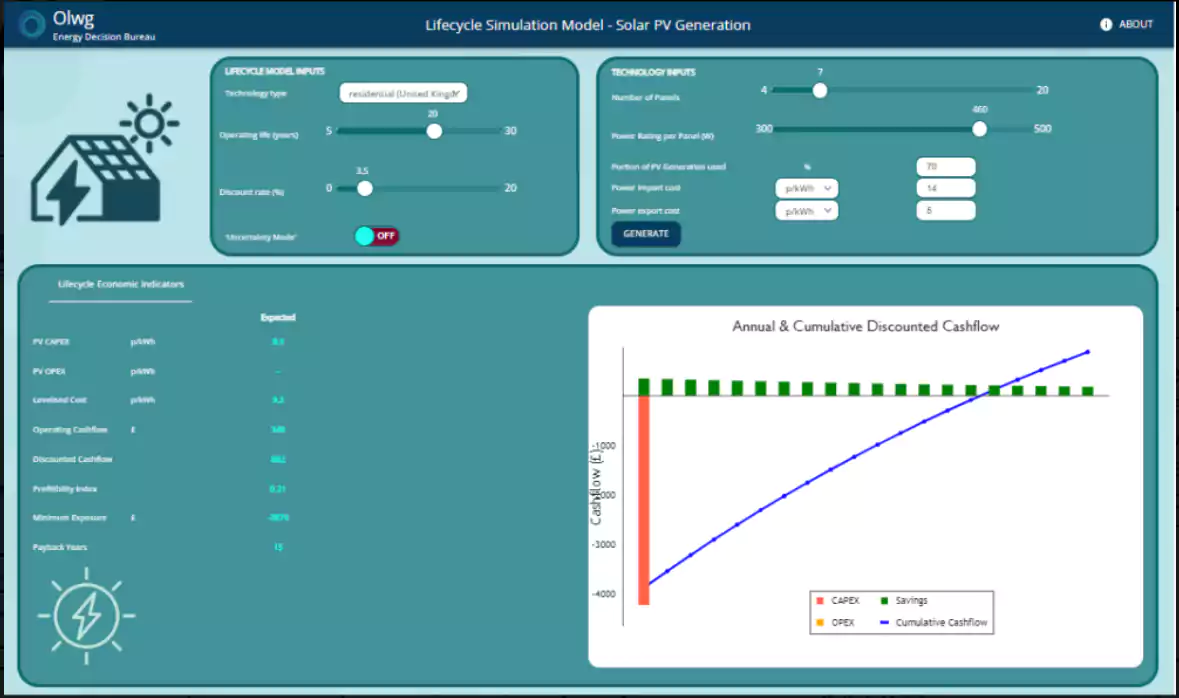
Blog written by Emmanuel Kirunda
COO & Commercial Director at Olwg LTD – The Energy Decision Bureau

